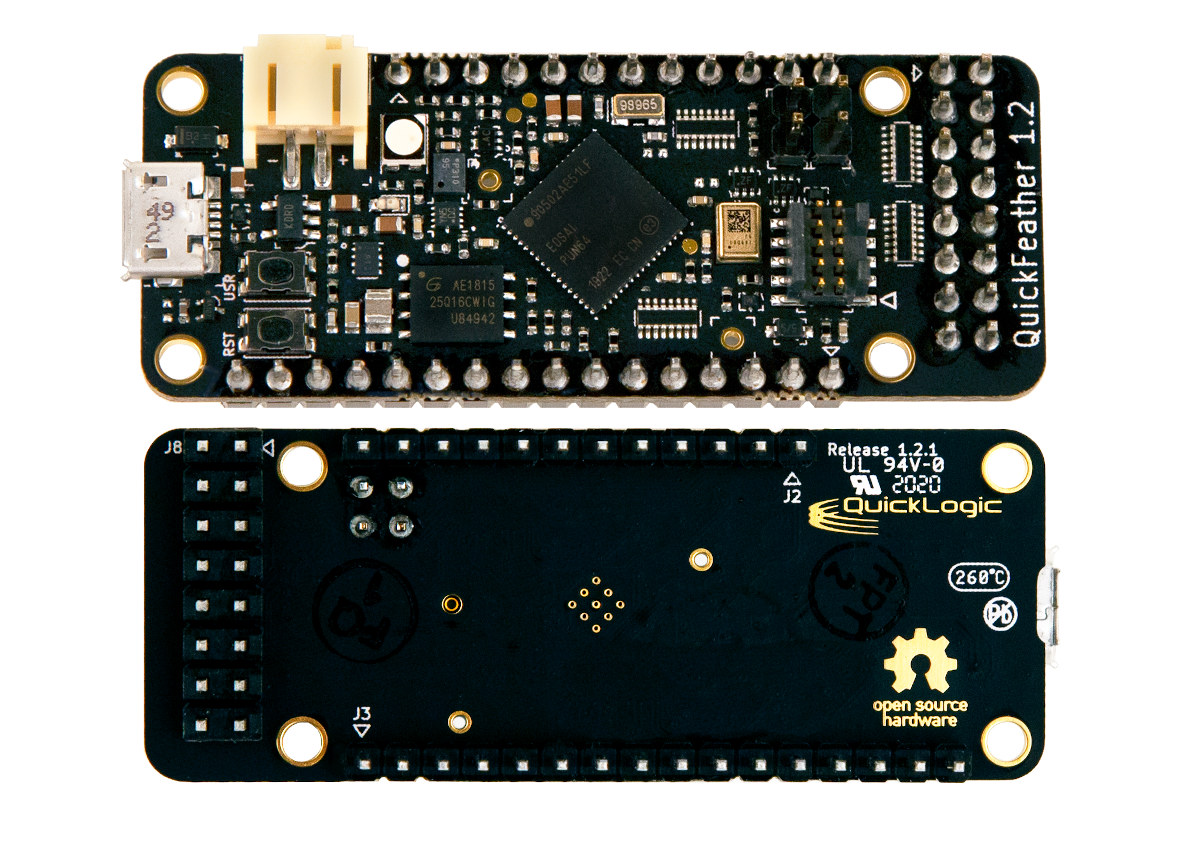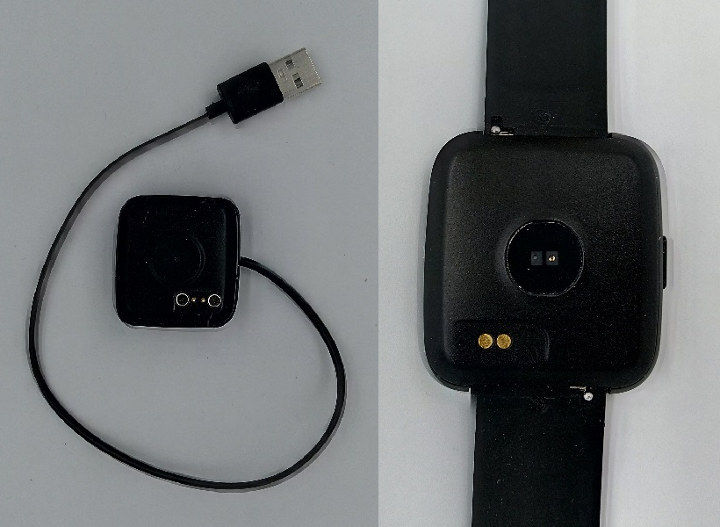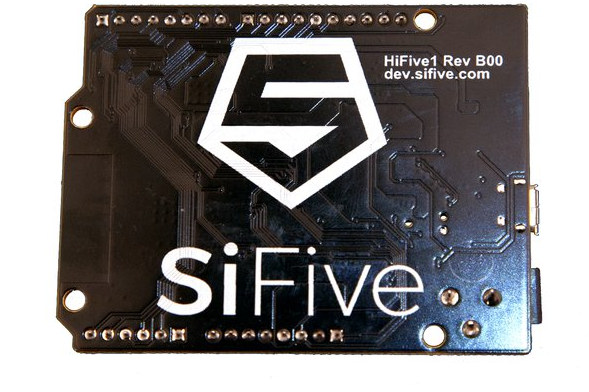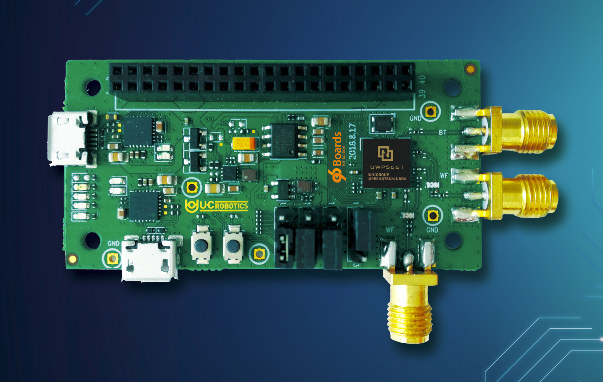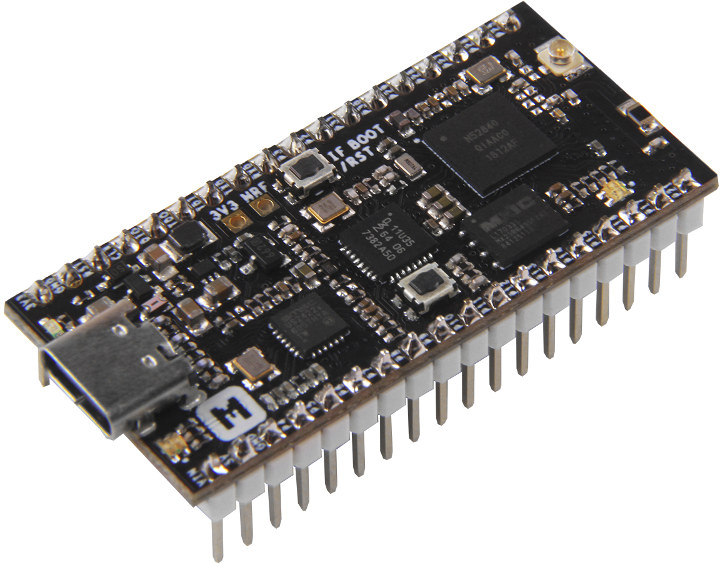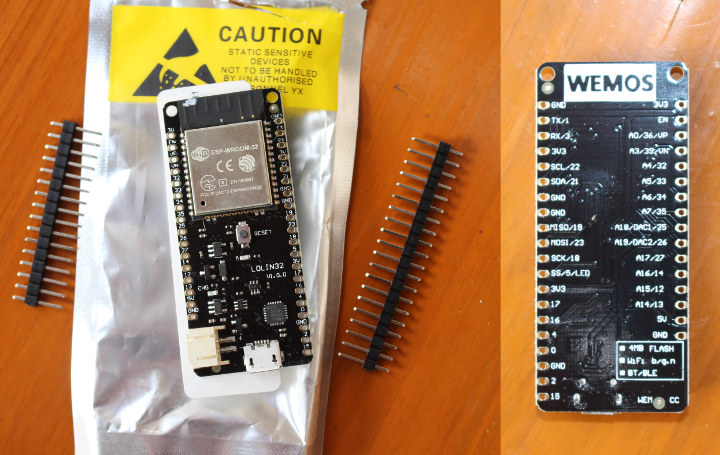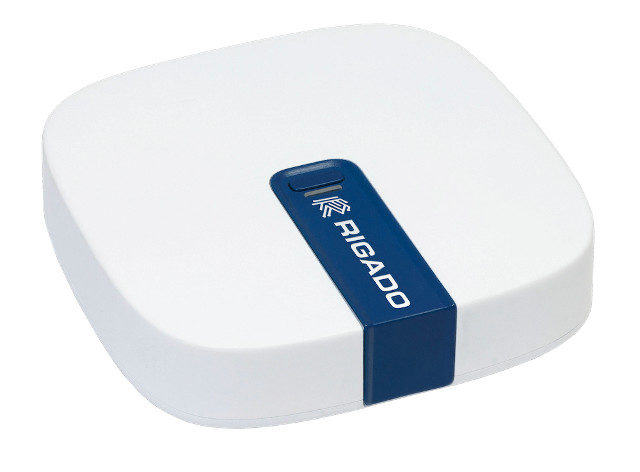Yesterday, I wrote about what I felt what a pretty unique board: Evo M51 board following Adafruit Feather form factor, and equipped with an Atmel SAMD51 Cortex-M4F MCU and an Intel MAX 10 FPGA. But less than 24 hours later, I’ve come across another Adafruit Feather-sized Cortex-M4F board with FPGA fabric. But instead of using a two-chip solution, QuickLogic QuickFeather board leverages the company’s EOS S3 SoC with a low-power Cortex-M4F core and embedded FPGA fabric. QuickFeather board QuickFeather specifications: SoC – QuickLogic EOS S3 with Arm Cortex-M4F Microcontroller @ up to 80 MHz and 512 Kb SRAM, plus an embedded FPGA (eFPGA) with 2400 effective logic cells and 64Kb RAM Storage – 16Mbit SPI NOR flash USB – Micro USB port with data signals tied to eFPGA programmable logic Sensors – Accelerometer, pressure sensor, built-in PDM microphone Expansion I/Os – Breadboard-compatible 0.1″ (2.54 mm) pitch headers including 20 Feather-defined […]
PineTime Smartwatch Specifications Released, Availability Scheduled for H1 2020
A couple of weeks ago, we covered PineTime smartwatch for PinePhone Linux smartphone that should be launched next year for around $25. At the time we had limited information from a Tweet as well as information provided by TL Lim, founder of Pine64 community, such as the watch would be based on Nordic Semi nRF52832 or nRF52840 multi-protocol WiSoC. But we now have much more details about specs and other details can be found in the Wiki. PineTime specifications: SoC (undecided, one or the other. See differences between nRF52832 and nRF52840 for details) Nordic Semiconductor nRF52832 Arm Cortex-M4F MCU @ 64 MHz with 512KB Flash, 64KB SRAM, Bluetooth 5 (no long range) Nordic Semiconductor nRF52840 Arm Cortex-M4F MCU with 1MB flash, 256KB flash, Bluetooth 5 (long range), 802.15.4 (e.g. for Zigbee), Arm Trustzone, etc… Storage – 8MB SPI NOR Flash (final product may use 16MB flash instead) Display – 1.3″ […]
Linaro Connect San Diego 2019 Schedule – IoT, AI, Optimizations, Compilers and More
Linaro has recently released the full schedule of Linaro Connect San Diego 2019 that will take place on September 23-27. Even if you can’t attend, it’s always interested to check out the schedule to find out what interesting work is done on Arm Linux, Zephyr OS, and so on. So I’ve created my own virtual schedule with some of the most relevant and interesting sessions of the five-day event. Monday, September 23 14:00 – 14:25 – SAN19-101 Thermal Governors: How to pick the right one by Keerthy Jagadeesh, Software Engineer, Texas Instruments With higher Gigahertz and multiple cores packed in a SoC the need for thermal management for Arm based SoCs gets more and more critical. Thermal governors that define the policy for thermal management play a pivotal role in ensuring thermal safety of the device. Choosing the right one ensures the device performs optimally with in the thermal budget. […]
HiFive1 Rev B Board Gets FE310-G002 RISC-V Processor, WiFi & Bluetooth Module
SiFive launched what may have been the very first RISC-V development board in 2016 thanks to their HiFive1 Arduino compatible board powered by Freedom E310 (FE310) open source RISC-V processor. The company has now launched an upgrade version of the processor and board. Meet FE310-G002 processor and HiFive1 Rev B development board. HiFive1 Rev B development board specifications with new features highlighted in bold or stricken-through: MCU – SiFive Freedom E310-G0002 32-bit RV32IMAC processor @ up to 320+ MHz (1.61 DMIPS/MHz) Storage – 32 Mbit SPI flash (was 128 Mbit in the first version) Connectivity – ESP32-SOLO-1 WiFi & Bluetooth module I/Os 19x Digital I/O Pins 19x external interrupt pins 1x external wakeup pin 9x PWM pins 1/3 SPI Controllers/HW CS Pins I/O Voltages – 3.3V or 5V supported; note: bidirectional level shifters removed so FE310-G002 can drive the I/O pins directly at 3.3V only. USB – 1x micro USB […]
96Boards IoT Edition IVY5661 Board Features UniSoC UWP5661 WiFi 5 + Bluetooth 5 SoC
If you ever wanted to start a new IoT project with WiFi and Bluetooth connectivity, you’d like think about using Espressif ESP32 WiSoC that supports single band 802.11 b/g/n WiFi (WiFi 4) and Bluetooth 4.2 LE thanks to great community and software support on top of the ultra low cost of the solution. But in case your require 802.11ac (WiFI 5) – yes, I’m trying hard to get used to the new WiFi naming scheme for consumers -, or Bluetooth 5, Espressif Systems does not offer such solution yet. Instead you may consider UniSoC UWP5661 Arm Cortex-M4 WiSoC with WiFi 5 & Bluetooth 5 connectivity that will be found in the soon-to-be-launched UcRobotics IVY5661 96Boards IoT Edition board. I could not find lots of information about UWP5661 chip tself, so let’s jump directly to IVY5661 board specifications: SoC – UniSoC UWP5661 dual core Arm Cortex-M4 microcontroller @ 416 MHz manufactured […]
Makerdiary nRF52840 Micro Development Kit Works with OpenThread, Arm Mbed OS, Zephyr OS, Mynewt, etc…
If you want to play around with Bluetooth 5, Nordic nRF52840 is probably one of the best option, and among the development board, $9/$12 Particle Xenon is hard to beat when it comes to value. But if you need a bit more storage, I/Os and features, Makerdiary nRF52840 micro development kit looks like a good candidate to evaluate, especially it supports plenty of frameworks / operating systems such as Arm Mbed OS, Zephyr Project, OpenThread, Mynewt, and others. It’s also the first MCU class board I’ve seen with a USB type C port, although I’m not sure it brings any benefits to this type of hardware. Makerdiary nRF52840 micro development kit (nRF52840-MDK) hardware specifications: SoC – Nordic nRF52840 Arm Cortex-M4F WiSoC with 1 MB FLASH and 256 kB RAM, Arm TrustZone Cryptocell 310 security subsystem External Storage – 64-Mbit QSPI flash Wireless Connectivity (on-chip) Bluetooth 5, Bluetooth Mesh Thread, IEEE […]
My Attempt at Getting Started with Zephyr Project OS on ESP32
Zephyr Project is a real-time operating systems for the Internet of Things (IoT) that was introduced in early 2016, and supported/hosted by the Linux Foundation. It runs on a fairly large number of MCU boards from different architecture (x86, Arm, RISC-V, etc..), and Linaro even launched 96boards IoT compliant hardware like BLE Carbon board that are designed to run Zephyr Project. More recently, Linaro CEO revealed several commercial products are shipping with Zephyr Project OS, so I thought it might be a good time to give it a try. Target Board – Wemos Lolin32 I only had STM32 Bluepill, and some ESP32 boards, so I went with the latter since it comes with WiFi. But instead of re-using some of my existing boards, I asked Banggood whether they could send Wemos Lolin32, which they did. They sell it for $7.99 shipped, but any other ESP32 board should do. The board […]
Rigado Vesta IoT Gateway Runs Linux and Zephyr OS, Supports Bluetooth 5, 802.15.4, WiFi, Ethernet and Cellular Connectivity
I’ve recently read several open source software news related to Rigado IoT gateway, starting with Canonical announcement last month, that the gateway would ship with Ubuntu Core starting in summer 2018, and a few days ago it popped up again during Linaro CEO keynote at Linaro Connect HK 2018, as one of the first commercial devices to run the Zephyr OS, specifically its fully open source Bluetooth stack on a Nordic nRF52 chip. Rigado Vesta IoT gateway is not exactly new, as it was first announced in December 2016. The hardware relies on an NXP i.MX 6UL Cortex A7 processor, up to 256MB RAM, 4GB eMMC flash, and includes built-in support for dual band WiFi, Bluetooth Smart, Bluetooth 5/4.2, 802.15.4 (Thread), Fast Ethernet with PoE, as well as optional support for a cellular LTE Cat 1 modem. Rigado gateway hardware specifications: Processor – NXP i.MX6 UltraLite (G3) Arm Cortex A7 […]


